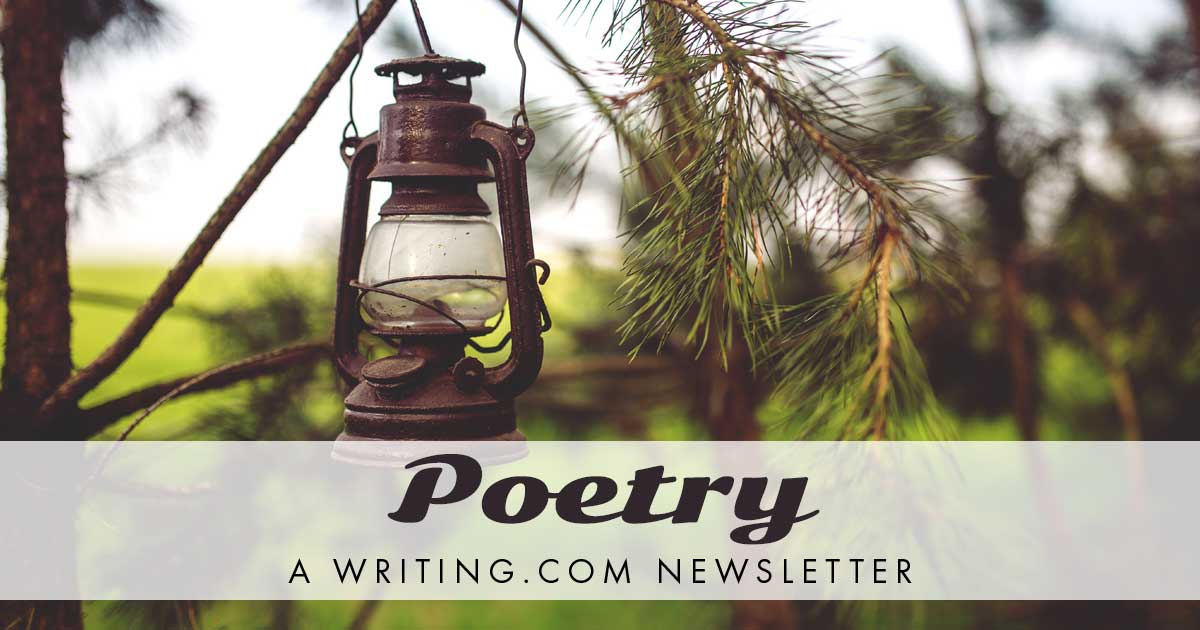This week: These Lines Are Not the Same Edited by: Jayne  
More Newsletters By This Editor 
![Table of Contents [#401437]
Table of Contents](https://www.Writing.Com/main/trans.gif) ![Table of Contents [#401437]
Table of Contents Table of Contents](/main/images/action/display/ver/1709303267/item_id/401437.png)
1. About this Newsletter
2. A Word from our Sponsor
3. Letter from the Editor
4. Editor's Picks
5. A Word from Writing.Com
6. Ask & Answer
7. Removal instructions
![About This Newsletter [#401439]
About This Newsletter](https://www.Writing.Com/main/trans.gif) ![About This Newsletter [#401439]
About This Newsletter About This Newsletter](https://www.writing.com/main/images/action/display/ver/1709303676/item_id/401439.png)
| Hi, I'm Jayne. I'll be your editor today. |
![Letter from the editor [#401442]
Letter from the editor](https://www.Writing.Com/main/trans.gif) ![Letter from the editor [#401442]
Letter from the editor Letter from the editor](https://www.writing.com/main/images/action/display/ver/1709303784/item_id/401442.png)
As we’ve discussed in the short stories newsletter, last lines matter. It’s not so much what these lines finish (although that’s important, too). What is really important is what they leave behind.
Unlike short stories, where the last line is often the punchline or twist, a poem’s last line is often a tonal shift. It reverberates backwards through the poem, often changing the shading between the poem’s lines. Sometimes, the entire meaning of the poem is upended.
The goal of a story ending is to resolve (yes, there are exceptions). But poetic endings don’t have to explain, resolve, or even answer the question the poem raised. The last line is a different kind of pressure point than stories have. They can be emotional, imagistic, or linguistic, but they don’t have to ‘conclude’ anything in the traditional sense.
Where poetry wants you to feel, short stories tend to want you to realize. A final sentence in a short story can:
 Deliver a twist or reversal Deliver a twist or reversal
 Complete a character arc Complete a character arc
 Force the reader to re-read the entire story with new eyes Force the reader to re-read the entire story with new eyes
 Leave you with one haunting image or question Leave you with one haunting image or question
But doesn’t poetry do this, too? What’s the difference?
Poems often end in emotion, but they are less likely to explain themselves. This is one of the things that frustrates many new poetry readers.
 There’s often no exposition. It doesn’t mean there isn’t a conclusion. There’s often no exposition. It doesn’t mean there isn’t a conclusion.
 It often creates more questions than it answers. It often creates more questions than it answers.
 It often reframes the poem’s entire narrative. It often reframes the poem’s entire narrative.
Take William Carlos Williams’ “This Is Just to Say.” The minimalist poem is deceptively sly.
I have eaten
the plums
that were in
the icebox
and which
you were probably
saving
for breakfast
Forgive me
they were delicious
so sweet
and so cold
Honestly, my guy. What is your issue, and who is your issue with?
So, are the last lines an apology? Or is the narrator being smug because they got to the plums first? What if they’re being cruel, taunting the person they deprived of plums by telling them how good they were? Are they defending their bad behaviour by saying they lost control (I empathize with this one, having occasionally decimated the remains of a tub of ice cream).
It’s up to you to decide.
As always, happy writing! |
![Editor's Picks [#401445]
Editor's Picks](https://www.Writing.Com/main/trans.gif) ![Editor's Picks [#401445]
Editor's Picks Editor's Picks](https://www.writing.com/main/images/action/display/ver/1709303830/item_id/401445.png)
![Word From Writing.Com [#401447]
Word from Writing.Com](https://www.Writing.Com/main/trans.gif) ![Word From Writing.Com [#401447]
Word from Writing.Com Word from Writing.Com](https://www.writing.com/main/images/action/display/ver/1709303874/item_id/401447.png)
Have an opinion on what you've read here today? Then send the Editor feedback! Find an item that you think would be perfect for showcasing here? Submit it for consideration in the newsletter!
https://www.Writing.Com/go/nl_form
![Ask & Answer [#401448]
Ask & Answer](https://www.Writing.Com/main/trans.gif) ![Ask & Answer [#401448]
Ask & Answer Ask & Answer](https://www.writing.com/main/images/action/display/ver/1709303902/item_id/401448.png)
![Unsubscribe [#401452]
Removal Instructions](https://www.Writing.Com/main/trans.gif) ![Unsubscribe [#401452]
Removal Instructions Removal Instructions](https://www.writing.com/main/images/action/display/ver/1709303960/item_id/401452.png)
To stop receiving this newsletter, click here for your newsletter subscription list. Simply uncheck the box next to any newsletter(s) you wish to cancel and then click to "Submit Changes". You can edit your subscriptions at any time.
|
